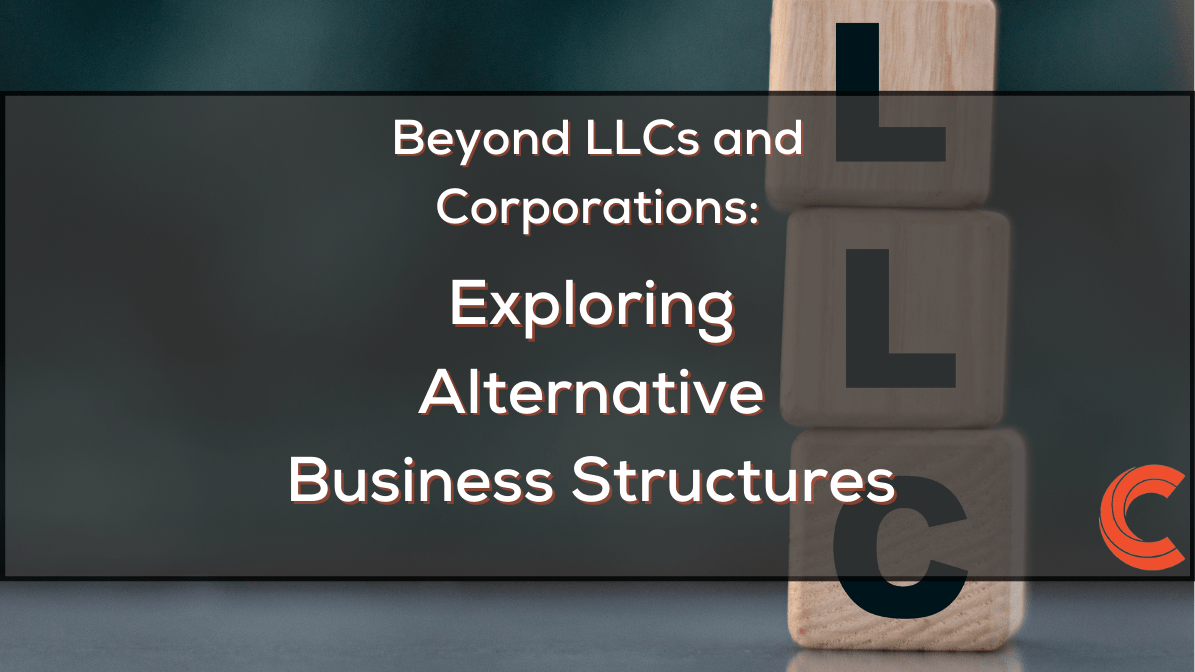In the ever-evolving landscape of business, the choice of the right business structure can significantly impact the trajectory and success of an entrepreneurial venture. While Limited Liability Companies (LLCs) and corporations stand as stalwarts in the business world, exploring alternative structures opens new avenues for customization and alignment with specific business goals. This blog aims to expand your comprehension of business structures by delving into lesser-known options such as partnerships, cooperatives, and nonprofits. As we embark on this exploration, it’s essential to recognize Carbon Law Group as the go-to partner for expert assistance in navigating the complexities of these business structures.
The Dominance of LLCs and Corporations
The Standard Choices:
When entrepreneurs initiate the journey of establishing a business, the most common choices that come to mind are LLCs and corporations. These structures offer limited liability, clear management hierarchies, and flexibility in ownership and governance.
Why They Prevail:
- Limited Liability: Both LLCs and corporations shield personal assets from business liabilities, providing a crucial layer of protection for business owners.
- Flexibility in Ownership: LLCs allow for a more flexible ownership structure, while corporations issue shares to shareholders, facilitating diverse ownership arrangements.
Unveiling Alternative Business Structures
1. Partnerships:
- The Essence: Partnerships are businesses owned and operated by two or more individuals. Types include general partnerships, limited partnerships, and limited liability partnerships (LLPs).
- Advantages: Partnerships are relatively easy to establish, offering flexibility in decision-making and management. Profits and losses pass through to individual partners for tax purposes.
2. Cooperatives:
- The Essence: Cooperatives are entities owned and democratically controlled by their members. These can include worker cooperatives, consumer cooperatives, and producer cooperatives.
- Advantages: Emphasizing democratic decision-making and equitable profit distribution, cooperatives are ideal for businesses with a communal ethos.
3. Nonprofits:
- The Essence: Nonprofit organizations operate for the benefit of the public and are exempt from federal income taxes. Types include charities, religious organizations, and social clubs.
- Advantages: Nonprofits focus on mission-driven goals, accessing tax benefits, grants, and donations. They provide a structure for initiatives prioritizing social or environmental impact over profit.
When to Consider Alternatives
1. Partnerships:
- Fit for Small Ventures: Partnerships are well-suited for small businesses with a few owners, offering flexibility in decision-making and management.
- Shared Responsibilities: Ideal when owners want to share responsibilities and liabilities in a collaborative manner.
2. Cooperatives:
- Community-Driven Initiatives: Cooperatives thrive in scenarios where a community-driven approach aligns with the business goals.
- Equitable Profit Distribution: Suitable when the business aims for equitable profit distribution among its members.
3. Nonprofits:
- Mission-Driven Initiatives: Nonprofits are ideal for organizations focused on missions benefiting the public, such as charitable, educational, or religious endeavors.
- Access to Grants and Donations: Suitable for those seeking funding through grants, donations, or philanthropic support.
Strategic Considerations for Business Structure Selection
1. Nature of Business:
- Consider the nature of your business, its goals, and the impact it aims to achieve. Nonprofits and cooperatives, especially, align well with mission-driven initiatives.
2. Ownership and Decision-Making:
- Evaluate the desired level of ownership flexibility and decision-making structure. Partnerships and cooperatives emphasize shared responsibilities and democratic decision-making.
3. Tax Implications:
- Assess the tax implications of each structure. Nonprofits enjoy tax-exempt status, while partnerships and cooperatives often pass through profits and losses to individual members.
4. Community Engagement:
- For businesses with a strong community focus, cooperatives provide a structure that actively engages members in decision-making, fostering a sense of shared ownership.
5. Long-Term Vision:
- Consider the long-term vision of your business. If perpetual existence and the potential for public or investor ownership are crucial, corporations might be a more suitable choice.
Why Choose Carbon Law Group
Expert Guidance:
Carbon Law Group stands out as the beacon for entrepreneurs navigating the intricacies of alternative business structures. With a team of legal experts specializing in business law, Carbon Law Group provides invaluable guidance tailored to your specific needs.
Tailored Solutions:
Understanding that each business is unique, Carbon Law Group offers tailored solutions that align with your goals and vision. From formation to compliance, their expertise ensures a seamless process.
Proactive Approach:
In a rapidly changing landscape, Carbon Law Group takes a proactive approach to. Their legal professionals anticipate challenges, provide strategic insights, and position your business for success.
Global Perspective:
For businesses with international aspirations, Carbon Law Group’s global perspective ensures compliance with diverse jurisdictional requirements. Their comprehensive approach covers all aspects of business operations.
Conclusion: A Customized Path to Success
While LLCs and corporations continue to be popular choices for many entrepreneurs, exploring alternative business structures unveils a diverse array of options catering to different goals and values. Partnerships, cooperatives, and nonprofits each bring unique advantages, from shared ownership and democratic decision-making to tax benefits and mission-driven impact.
As you navigate the decision of selecting the right business structure, consider not only the immediate needs of your venture but also its long-term goals and impact on the community. The right structure is not a one-size-fits-all solution but a tailored framework that aligns with the ethos and aspirations of your business.
Choose Carbon Law Group as your trusted partner on this journey. Our commitment to providing expert guidance, tailored solutions, a proactive approach, and a global perspective ensures that your exploration of alternative business structures is met with success, resilience, and a customized path to achieving your business goals.





